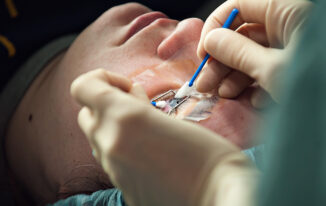Amongst the few potentially serious sleep disturbances known to man is known as Sleep Apnea. This is something that affects over 50% of the world. But what is it and can dentists help you sort this out? Keep reading to find the answers below.
What is Sleep Apnea?
If not treated in its early stages this can be a terrifying health condition, and some people almost completely stop breathing in their sleep. The best way to tell is when your breathing stops and then starts again after a few seconds, while you’re sleeping.
For some people, it is a matter of repeated snoring, even if you are not tired and have had enough sleep the previous nights. This article from the Mayo Clinic can give you a detailed explanation of this condition, however, we will touch on all the important points.
This condition has affected the majority of people’s lives without them even knowing it. Unless you’re sleeping with someone next to you in bed, it can be hard to tell.
Three Main Types of Sleep Apnea
The Obstructive type – a common one that affects more people than usual and involves the throat muscles relaxing when you are sleeping
The Complex type – this is also called ‘treatment-emergent central sleep apnea’: https://www.verywellhealth.com/what-is-complex-or-treatmentemergent-sleep-apnea-3015311, and can be a combination of obstructive and central types.
The Central type – when your brains messaging services are hindered and it doesn’t send signals to your muscles, particularly the ones that control your breathing, this is when this type of apnea occurs.
Symptoms and How Dentists Can Help
Did you know this condition can affect a lot more than just your sleep? There are several symptoms related to it, the list below is a few of them:
- Intermittent episodes of stopping to breathe and then starting again
- Snoring loudly
- Headaches in the morning
- Insomnia, or difficulty falling asleep and, in some cases, staying asleep
- Having dry mouth when you wake up
- Being irritable throughout the day
- Hypersomnia or falling asleep during the day
- While you’re sleeping you gasp for air without knowing
- Affecting your focus during the day
The dangers of this far exceed your sleep and can affect anything from the growth of your hair to nails and can affect your appetite, lead to excessive smoking, excessive weight issues, daytime fatigue and not being able to concentrate causing faults at work and in your personal life, liver problems and more.
How dentists can help is by prescribing specific treatments or equipment to help you with this. One of the common ones includes a Continuous Positive Airway Pressure or abbreviated as a CPAP machine that you wear at night while you sleep. A CPAP helps your body get the necessary amount of oxygen that it needs to help you get a good night’s sleep, as explained in many online sources with medical background and patient information.
To understand this, think about a mouthpiece that you insert into your mouth while you sleep. Some devices sit on your bed side and have a tube attached to another piece that you would place over your mouth while you sleep. It can help produce more than 30% of the air that is needed to be able to breathe better and thus sleep better.
There may not be a lot of dental practices that have this specialty or the equipment to help you sort out your particular condition out of the three mentioned above, however, if you do an online search for a specific Moore Dentist, the chances are that you will find one that offers it as part of their treatment services.
They can test your sleep patterns according to a specific CPAP index, which records the oxygen levels consumed while you’re laying down and have three levels recorded by numbers, which include, Mild: 5-15, Medium or Moderate: 15-30 and Severe: 30+. There are also other devices available to help with this, such as the APAP Positive Airflow Pressure machine or the BiPAP Bi-level Positive Airflow Pressure and these will depend on the severity of your condition and needs for support.
Before investing in any of the above-mentioned machines, always makes sure you book a consultation with the dental practice or health clinic to find out, first if you need one, and secondly the best one that fits your issue and lifestyle. Never try to self-diagnose as it may lead to worsening your current condition.






